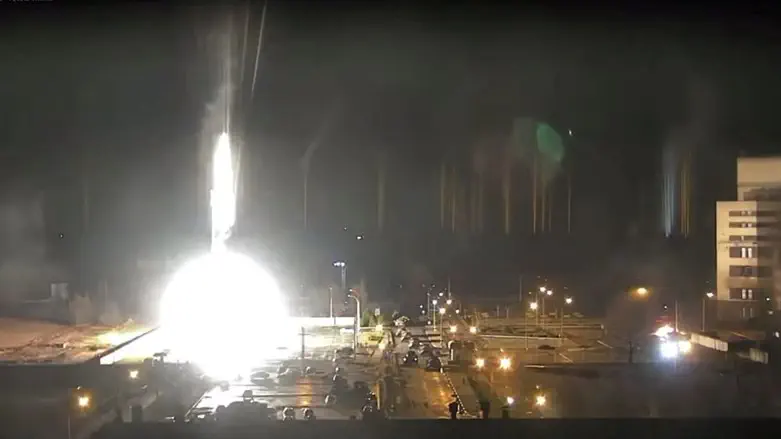
Russia and Ukraine on Sunday traded claims of rocket and artillery strikes at or near Europe's largest nuclear power plant, The Associated Press reports.
Ukraine's atomic energy agency painted an ominous picture of the threat by issuing a map forecasting where radiation could spread from the Zaporizhzhia Nuclear Power Plant, which Russian forces have controlled since soon after the war began.
Attacks were reported over the weekend not only in Russian-controlled territory adjacent to the plant along the left bank of the Dnieper River, but along the Ukraine-controlled right bank, including the cities of Nikopol and Marhanets, each about 10 kilometers (six miles) from the facility.
Russian Defense Ministry spokesman Igor Konashenkov said Sunday that Ukrainian forces had attacked the plant twice over the past day, and that shells fell near buildings storing reactor fuel and radioactive waste.
Neither side's claims could be independently verified.
The Zaporizhzhia complex has been occupied by Russian forces and operated by Ukrainian workers since the early days of the six-month-old war.
Russia and Ukraine have repeatedly accused each other of shelling the nuclear installation, sparking fears of a nuclear accident.
Last week, the plant was severed from Ukraine's power network for the first time in its four-decade history due to what Ukraine’s energy operator, Energoatom, said were "actions of the invaders". The plant came back online the next day.
Russian President Vladimir Putin last week agreed for a team of independent inspectors to travel to Zaporizhzhia via Ukraine, in an apparent resolution of a dispute over whether inspectors travel to the plant via Ukraine or Russia.
The UN's International Atomic Energy Agency (IAEA) recently said its inspectors will visit the Zaporizhzhia plant “within days”.
The UN had demanded an end to the shelling of the Zaporizhzhia nuclear power plant. Previously, IAEA chief Rafael Grossi warned that Zaporizhzhia is “completely out of control.”

